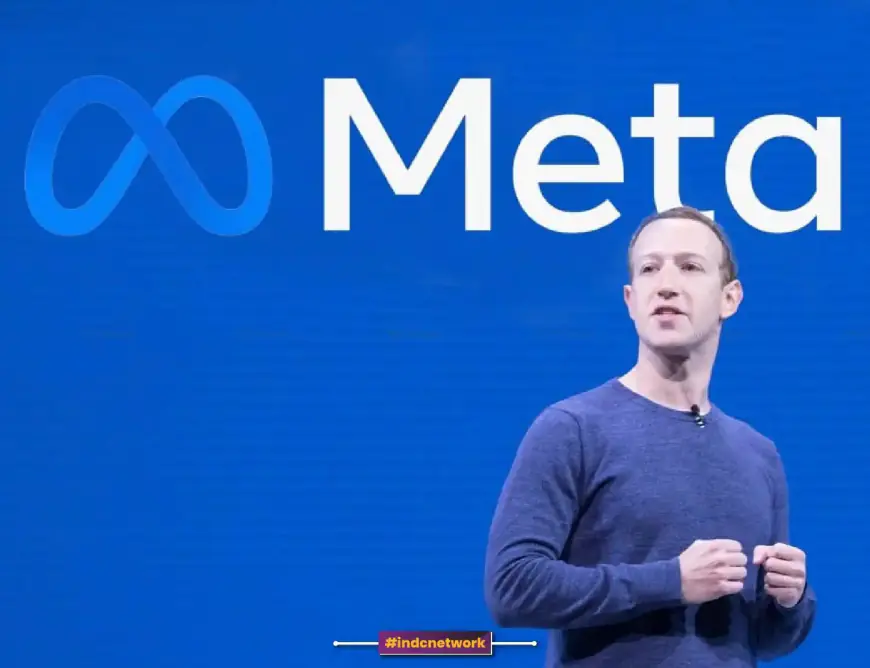From Dorm Room to Digital Empire: How Mark Zuckerberg’s Meta Shaped the Virtual World
Mark Zuckerberg, the mastermind behind Facebook (now Meta), has redefined global communication and connection. From launching Facebook in a Harvard dorm room to leading the charge into the metaverse, Zuckerberg’s journey is a tale of innovation, ambition, and controversy. This article delves into his rise, Facebook's transformation into Meta, and the profound impact of his work on the digital landscape.

INDC Network : Biography : Mark Zuckerberg: The Visionary Behind Facebook and the Metaverse
In the world of technology and innovation, few names stand as prominently as Mark Zuckerberg’s. As the co-founder and CEO of Facebook (now Meta Platforms, Inc.), Zuckerberg has played a pivotal role in reshaping how people connect, share, and interact online. His story, marked by ambition, controversy, and groundbreaking achievements, showcases the power of vision and persistence in the face of rapid technological evolution.
The Birth of Facebook: From a Dorm Room to Global Domination
Mark Zuckerberg was born on May 14, 1984, in White Plains, New York. A prodigious child with a keen interest in programming, he built early software like "ZuckNet," a communication tool for his family. His passion for coding grew stronger during his time at Phillips Exeter Academy and later at Harvard University.
In 2004, while a sophomore at Harvard, Zuckerberg launched The Facebook, initially designed as a platform for Harvard students to connect. Co-founded with Eduardo Saverin, Dustin Moskovitz, Chris Hughes, and Andrew McCollum, the platform quickly gained traction across other universities.
By 2005, the platform dropped “The” from its name, becoming simply Facebook. The shift marked the start of its transition into a global phenomenon. With investment from venture capital firms and an expanding user base, Facebook became the world’s leading social media platform.
Building a Social Media Giant
Under Zuckerberg's leadership, Facebook grew at an unprecedented pace. Key milestones in its early years included:
- News Feed (2006): A feature that transformed how users consumed and shared content.
- Opening to the Public (2006): Facebook expanded access beyond universities, enabling anyone over 13 to join.
- Acquisitions: To diversify and strengthen its offerings, Facebook acquired Instagram (2012), WhatsApp (2014), and Oculus VR (2014).
- IPO (2012): Facebook’s initial public offering valued the company at $104 billion, marking a historic moment for tech companies.
Zuckerberg’s vision for Facebook went beyond social networking. He aimed to create a platform that connected people, fostered communities, and provided businesses with tools to thrive in the digital age.
Controversies and Criticisms
Despite its success, Facebook has faced numerous controversies under Zuckerberg’s leadership:
- Privacy Issues: The Cambridge Analytica scandal in 2018 revealed the misuse of user data, sparking global debates on data privacy and regulation.
- Misinformation: Critics argue that Facebook has struggled to manage fake news and misinformation, influencing elections and societal discourse.
- Monopoly Allegations: Facebook’s dominance in the social media space and its acquisitions of rivals have drawn scrutiny from regulators.
- Mental Health Concerns: Studies have highlighted the platform's potential negative effects on mental health, particularly among young users.
Zuckerberg has often been at the center of these debates, testifying before Congress and facing public criticism. Despite these challenges, he has remained steadfast in his mission to connect the world.
The Rebranding to Meta: A Bold New Vision
In October 2021, Zuckerberg announced that Facebook would rebrand as Meta Platforms, Inc., signaling a shift in focus toward the metaverse—a virtual, immersive digital environment. The name change reflected Zuckerberg’s long-term vision of building a next-generation internet where users can interact in virtual spaces using augmented reality (AR) and virtual reality (VR) technologies.
The transition to Meta is underpinned by several initiatives:
- Horizon Worlds: A VR platform enabling users to socialize, work, and create in virtual spaces.
- Oculus: Meta's VR hardware, including the Quest series, is central to its metaverse strategy.
- AI Integration: Leveraging artificial intelligence to enhance user experiences and interactions.
- AR Glasses: Meta is working on AR devices to merge the physical and virtual worlds seamlessly.
Zuckerberg’s Leadership Style and Philosophy
Mark Zuckerberg’s leadership style is defined by his hands-on approach, long-term thinking, and risk-taking. His guiding principles include:
- Move Fast and Break Things: A mantra that emphasizes speed and innovation over perfection.
- Connection Over Profit: Zuckerberg often speaks about connecting people as Facebook's core mission, though critics question the balance with profit motives.
- Focus on the Future: His pivot to the metaverse demonstrates a commitment to staying ahead of technological trends.
However, his management style has also drawn criticism. Some employees and industry insiders describe him as controlling and resistant to dissent. Despite this, Zuckerberg has maintained a loyal leadership team and a clear vision for Meta’s future.
Impact on Society and the Digital Landscape
The impact of Mark Zuckerberg’s work is profound:
- Global Connectivity: Facebook has connected billions of people, enabling friendships, businesses, and movements to flourish.
- Business Empowerment: Platforms like Facebook and Instagram have empowered small businesses to reach global audiences.
- Digital Advertising: Meta’s ad platforms have revolutionized digital marketing, offering unprecedented targeting capabilities.
- The Rise of the Metaverse: Zuckerberg’s push into AR and VR is shaping the future of digital interaction.
However, the influence of Facebook (Meta) is a double-edged sword. While it has brought people together, it has also amplified divisions, raised privacy concerns, and reshaped societal norms in complex ways.
The Road Ahead for Meta and Zuckerberg
As Meta continues to build the metaverse, it faces significant challenges, including regulatory scrutiny, competition, and user skepticism. Zuckerberg remains optimistic, investing billions in R&D and doubling down on his vision of a connected, immersive digital future.
In a world where technology evolves rapidly, Mark Zuckerberg’s story is far from over. His journey from a college student coding in a dorm room to the leader of a tech empire underscores the transformative power of innovation and ambition.









